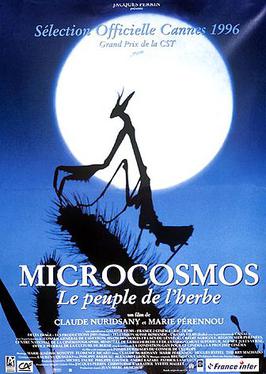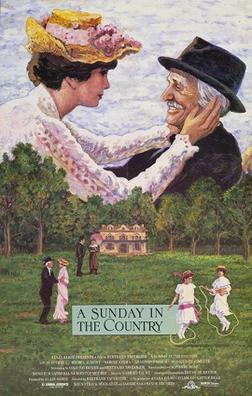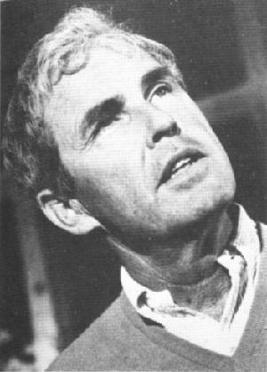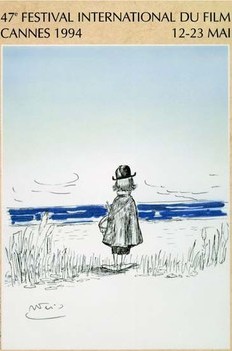
James Howard Woods is an American actor. Known for fast-talking intense roles on screen and stage, he has received numerous accolades, including three Emmy Awards, and a Golden Globe Award, as well as nominations for two Academy Awards and three Screen Actors Guild Awards. He started his career in minor roles on and off-Broadway before making his Broadway debut in The Penny Wars (1969), followed by Borstal Boy (1970), The Trial of the Catonsville Nine (1971) and Moonchildren (1972). Woods' early film roles include The Visitors (1972), The Way We Were (1973) and Night Moves (1975). He starred in the NBC miniseries Holocaust (1978) opposite Meryl Streep.

Thirty Two Short Films About Glenn Gould is a 1993 Canadian biographical anthology film about the pianist Glenn Gould, played by Colm Feore. It was directed by François Girard, with a screenplay by Girard and Don McKellar.

Margarethe von Trotta is a German film director, screenwriter, and actress. She has been referred to as a "leading force" of the New German Cinema movement. Von Trotta's extensive body of work has won awards internationally. She was married to and collaborated with director Volker Schlöndorff. Although they made a successful team, von Trotta felt she was seen as secondary to Schlöndorff. Subsequently, she established a solo career for herself and became "Germany's foremost female film director, who has offered the most sustained and successful female variant of Autorenkino in postwar German film history". Certain aspects of von Trotta's work have been compared to Ingmar Bergman's features from the 1960s and 1970s.

Georgia is a 1995 American independent film directed by Ulu Grosbard. It follows a barroom punk singer who has a complicated relationship with her older sister.

Bertrand Tavernier was a French film director, screenwriter, and producer.

Looking for Richard is a 1996 American documentary film directed by Al Pacino, in his directorial debut. It is a hybrid film, including both a filmed performance of selected scenes of William Shakespeare's Richard III and a documentary element which explores a broader examination of Shakespeare's continuing role and relevance in popular culture. The film was featured at the Sundance Film Festival in January 1996 and it was screened in the Un Certain Regard section at the 1996 Cannes Film Festival. Al Pacino won the Directors Guild of America Award for Outstanding Directing – Documentaries.

Microcosmos is a 1996 documentary film written and directed by Claude Nuridsany and Marie Pérennou and produced by Jacques Perrin. An international co-production of France, Switzerland, Italy and the United Kingdom, the film showcases detailed interactions between insects and other small invertebrates, and features music by Bruno Coulais.

Denise Calls Up is a 1995 American comedy film written and directed by Hal Salwen. It has an ensemble cast which includes Liev Schreiber, Timothy Daly, and Alanna Ubach. The plot revolves around a group of friends in New York City who, while working at their PCs and laptops and keeping in touch by phone and fax, never seem to be able to get together. The film won the Jury Prize at the Deauville American Film Festival and a Special Mention for the Camera d'Or at the Cannes Film Festival.

A Sunday in the Country is a 1984 French drama film directed, co-written, and co-produced by Bertrand Tavernier, based on Pierre Bost's 1945 novel Monsieur Ladmiral va bientôt mourir. The film stars Louis Ducreux, Michel Aumont, Sabine Azéma, Geneviève Mnich, and Monique Chaumette. It explores family dynamics in a clan on the eve of World War I.
Janet R. Maslin is an American journalist, best known as a film and literary critic for The New York Times. She served as a Times film critic from 1977 to 1999 and as a book critic from 2000 to 2015. In 2000, Maslin helped found the Jacob Burns Film Center in Pleasantville, New York. She is president of its board of directors.

Robert Reese Parrish was an American film director, editor and former child actor. He won an Academy Award for Best Film Editing for his work on Body and Soul (1947).

Under the Volcano is a 1984 drama film directed by John Huston and starring Albert Finney, Jacqueline Bisset, and Anthony Andrews, based on Malcolm Lowry's semi-autobiographical 1947 novel. The film follows the last 24 hours in the life of Geoffrey Firmin (Finney), an alcoholic British former consul in the small Mexican town of Quauhnahuac on the Day of the Dead in 1938. The film is an international co-production between Mexico and the United States.

Nirad Narayan Mohapatra was an Indian film director. Mohapatra was born in the Indian state of Odisha. He directed the Oriya language film Maya Miriga, television soap operas and documentaries.

The 47th Cannes Film Festival was held from 12 to 23 May 1994. The Palme d'Or went to the American film Pulp Fiction directed by Quentin Tarantino.

The Horse Thief is a 1986 Chinese film by director Tian Zhuangzhuang. It follows one of Tian's favorite topics, Chinese minorities, a topic he touched upon in 1984's On the Hunting Ground and would return to in 2004's documentary, Delamu. Like these other films, The Horse Thief shows Tian's fascination with China's ethnic minorities, and in particular the Buddhist ceremonies that these peoples practice.

Ayn Rand: A Sense of Life is a 1996 American documentary film written, produced, and directed by Michael Paxton. Its focus is on novelist and philosopher Ayn Rand, the author of the bestselling novels The Fountainhead and Atlas Shrugged, who promoted her philosophy of Objectivism through her books, articles, speeches, and media appearances.

Camilla is a 1994 comedy drama film directed by Deepa Mehta. It was Jessica Tandy's penultimate film appearance and is dedicated to her memory. Tandy plays the title character, Camilla Cara, a former concert violinist. Bridget Fonda plays the role of Freda Lopez, an unfulfilled musician and composer.

Captain Conan is a 1996 French drama film directed by Bertrand Tavernier. It is based on the 1934 Prix Goncourt-winning novel Captain Conan by Roger Vercel.

Jean Aurenche was a French screenwriter. During his career, he wrote 80 films for directors such as René Clément, Bertrand Tavernier, Marcel Carné, Jean Delannoy and Claude Autant-Lara. He is often associated with the screenwriter Pierre Bost, with whom he had a fertile partnership from 1940 to 1975.

Chords of Fame is a 1984 feature-length documentary film about Phil Ochs, a US singer-songwriter of the 1960s and early 1970s. The film was directed by Michael Korolenko, written by Mady Schutzman, and produced by Korolenko, Schutzman, and David Sternburg. It was funded in part by grants from the American Film Institute and the National Endowment for the Arts.



















